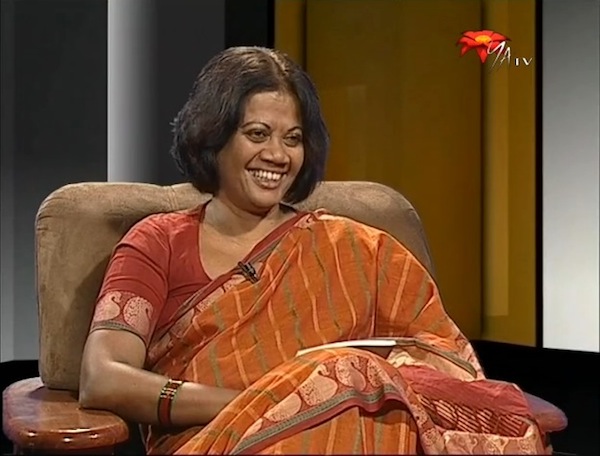Priyanthi Fernando is the Executive Director, Centre for Poverty Analysis, an independent, Sri Lankan think-tank promoting a better understanding of poverty related development issue based in Colombo. We begin our conversation about the nature of poverty in post-war Sri Lanka, and how significant and growing regional disparities are often glossed over by progress at national level indicators.
We then talk at length about what remains the only tome looking at the human impact during and after the construction of the E01 highway. Published by CEPA, Right of Way: A journey of resettlement by Sharni Jayawardena was reviewed at length on Groundviews in January this year. Priyanthi spoke of the challenge to get it translated into Tamil and Sinhala, because the book dealt with the first road development in Sri Lanka that displaced thousands of people and featured innovative programmes for compensation. As noted in the review of the book on this site,
Even approximately, the number of those affected in some way by the development of the E01 is mind-boggling. At a conservative 4 members per family, around 5,300 children, women and men were displaced. Another 4,000 had their incomes disrupted, and their livelihoods placed at risk. It’s currently 400 rupees one-way from Kottawa to Galle or back on the E01. Few of us give a second thought to paying that amount. Sharni’s research highlights the hidden costs of E01’s development, where to date, families that had for generations lived where they did, had stable income, well-established business and fecund land were forced to give it all up. It’s a humbling, vital narrative.
Priyanthi noted these were important examples and good practices over the development of the E01 to look at in future highway development in the country.
We then talked at length about the Right to Information and development, and how the absence of any legal framework to enable access to information impacted on the quality and nature of development. We also talk about the nature of the on-going urban development, and why in Colombo for example, there is an emphasis on road development for increasing vehicular traffic, but almost no emphasis on self-propelled traffic (cycles, rickshaws). Priyanthi makes the important distinction between cycling for recreational purposes (those who don’t have to, but want to) and cycling because people can’t afford any other form of transport (cycling not out of choice, but necessity). Urban planning today, she notes, did not take into account those whose cycles were their primary mode of transport.
Priyanthi avers that the measure of sustainable development is how a country treats its weakest members, and critiques current mega-development projects as being guided instead by what the ablest sections of society, for their primary benefit. Towards the end of our discussion we talk about the cutting down of trees in Colombo (reported on Groundviews last year and this year, via compelling blog posts like this one by Dance in a Triangle). Priyanthi notes that while CEPA has no organisational mandate to be an activist voice in this regard, she feels very upset when trees that are decades old and add character to the streets of Colombo are cut down, sometimes to just replant in the same place, another sapling of a different, more patriotic variety.
We end our discussion by looking at CEPA’s range of new media initiatives, from its use of Facebook and Twitter to the sui generis PACT website and innovative projects that used black and white photography to showcase the poverty in the tea-producing hill-country of Sri Lanka. Priyanthi speaks to the importance of embracing new media so that research output doesn’t just sit of shelves, but is actually made available to, and used by, a larger group and over time.
